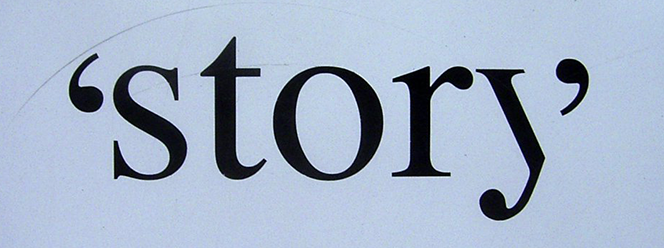
by Tara Joyce | Sep 29, 2016 | Self/Business Growth

It all depends on how long you keep telling yourself the story that is feeding your anger. Your emotional reaction, your anger, it is a result of your conditioning. By nature, it only lasts a few moments. But if you feed the reaction, through your thoughts, it keeps going. And growing.
What was once an momentary emotion grows into something bigger. A story begins to build. An emotion can become a mood. The mood becomes a temperament. The temperament transforms your personality. Your day/year/life is now “ruined” not because of X occurrence, but because of what you are still telling yourself about X.
It’s the story that’s hurting you.
Oh yes, the emotion may be painful, but if you can experience it fully, in the moment as children do allowing it to pass without a story and without attachment, you can have your experience and be over it in a matter of moments. You can be over it not because you got what you wanted and not because it wasn’t painful, but because you know how to experience your emotions and discipline your thoughts. You know their importance and their place in your life.
While not a simple thing, not needing to create a story to spur your emotions on leaves you free to fully feel them and to thoughtfully express them. Finding yourself unattached to your emotional reactions and the stories they may arise, you allow them to pass, rightfully returning to your default state: happiness. Authentic happiness, which likely isn’t the storybook kind.
photo credit: Robyn Budlender

by Tara Joyce | Jan 27, 2016 | Cultural Creativity, Personal Branding, Self/Business Growth

In whatever shape it may take, whenever I hear a story, I find myself wondering how it is serving the person who is telling it. I understand what’s being presented is not the whole story, and perhaps, it’s not even half. It’s the version of the story the storyteller wants to share with me and it’s the version of the story they want to see.
We can have a lot of unconscious motivations and intentions behind the stories we tell, and while it would be lovely to think they are all pure and love-filled, this may not be true. We share stories to share a story—to share a version of events that we feel will be emotionally impactful. It’s not the truth per say, otherwise we might call it that.
I suppose I don’t put a lot of value on my own stories and those of others. They are there to entertain and educate, but to hold them as “the truth” and/or to hold my own experiences up to them in comparison, feels like a fool’s game. A story might sound complete but the truth is, it only contains the parts wanted to be shared, the parts that keep it intact and “true.” The whole truth is far more nuanced and complex than any story can tell.
Stories by their definition and essence are leading. They are meant to take you on a journey where the course has already been planned. We need to see stories as such, for our own health and happiness. We need to know they are not “the truth,” and are not intended to be. They are simply creations of our experience and our imagination, and how we need to perceive things. There is no need to attach to them.
Write your stories. Love your stories. And acknowledge them for “the truth” they are not. See the stories you attract—and are attracted to—for what they are: expressions of you, and how you perceive your world.
photo credit: duncan c

by Tara Joyce | Dec 8, 2014 | Innerpreneurship, My Journey | What's On My Mind, Personal Branding

There’s a growing phenomenon in Business, specifically in Marketing and Branding trends, of increasingly emphasizing the importance of telling your story — or more truthfully, selling your story.
This concept confuses me.
Asking me what my story is confuses me. You knowing what your story is confuses me.
When I’m asked what my story is, for instance, I may think about my “Innerpreneurial” story just to help my mind focus, but even then I fragment into a million directions. Do I want to share about getting my business starting? Do I want to share about reclaiming my artist and overcoming my creative and mental blocks? Or do I share how I’ve managed my home when both my husband and I are entrepreneurs? What about how I’ve needed to and have completely redesigned my life and world? Where and what part of my life experience is the part that sells?
Maybe this whole story business is suppose to confuse me. Maybe there’s benefit for me to be confused and feeling unsure. Maybe there’s benefit to you seeming clear in your story, and I, not. Maybe then I will more easily buy your story.
Maybe I’m to be confused by the idea that I have one powerful story to tell and sell, and that I can neatly fit my life and my experiences into it. Maybe that’s the point. To present life, or me, or my product, as more simple and clear, together and whole, than your life currently is. Maybe then you will buy the story I’m selling and telling.
There are so very many experiences and learning within me that when I attempt to present you with just one, I wholly feel the incompleteness of the perspective I am presenting. This feeling leaves me wondering, how valuable is it for us to be attached to our own and others stories? What value do we get from these stories we repeat about our Self and others?
There are so many potential stories within us, the ones we attach to and share, what do they say about us and how helpful are they?
photo credit: Venture Vancouver






